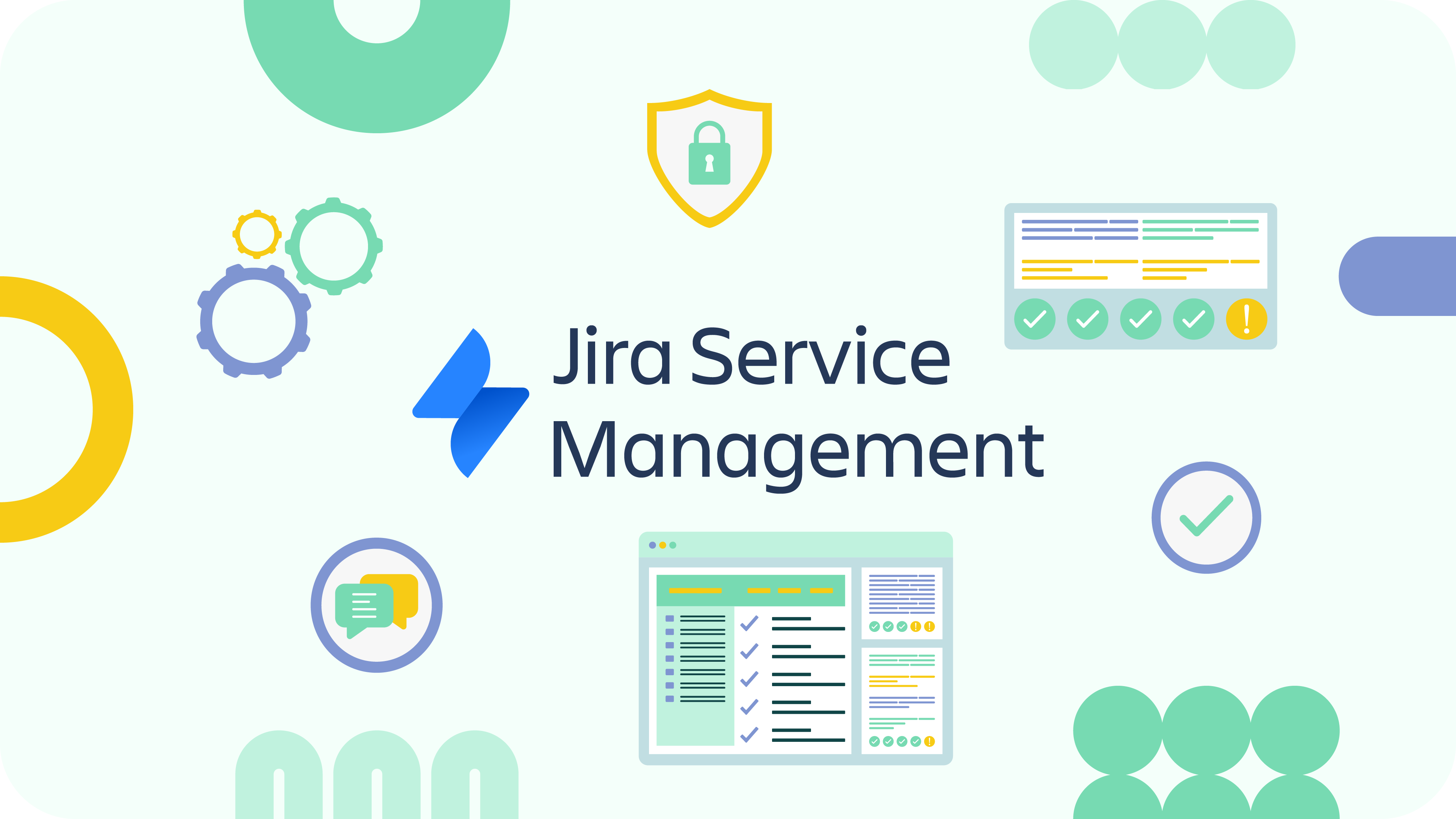IT departments must choose the best solution between the most popular ITSM domains, ServiceNow and Jira, to provide faster and better services for clients’ high expectations and individual demands. Both platforms have features necessary for effective service management that are key pillars for the success of modern businesses. However, deciding which solution better meets a company’s IT needs can be challenging.
In this article, we will compare these two ITSM platforms, ServiceNow and Jira Service Management; we’ll see their aspects, functions, and best features to deliver excellent solutions and benefit from their usage. We’ll juxtapose them regarding user-friendliness, utility, implementation, integration with other apps, and pricing. Let’s have a look.
- What is ServiceNow
- What is Jira Service Management
- Jira vs ServiceNow Comparison
- How to Choose Between Jira vs ServiceNow
- Recap

What is ServiceNow
ServiceNow is a powerful and universal cloud-based IT service management (ITSM) platform that enables organizations to automate work processes and deliver quality services. It allows organizations to develop, structure, and improve their operations and business aspects, solving complex problems and incidents and meeting business needs. Process integration within a single instance helps organizations manage their digital workflows for day-to-day business processes.
Having roots in ITSM, ServiceNow constantly evolves and merges all profit-orienting functions, such as the customer helpdesk, human resources, and security. Thanks to its versatility, it’s used by various organizations to provide all kinds of services across essential sectors like education, financial services, energy and utilities, telecommunication, government, manufacturing, logistics, healthcare, retail, service providers, media, and technology.
The fact that the platform is in the cloud allows all users to connect from any device at any time, thanks solely to an Internet connection. Companies using ServiceNow thus have a single point of engagement for the entire enterprise. ServiceNow is nothing more than a platform as a service that helps provide the infrastructure needed to deploy and run business applications and services. It provides ITSM applications and helps automate many organizational workflow activities.
ServiceNow Features
ServiceNow’s broad set of features enables organizations to transform workflows and operations, promoting efficiency, collaboration, and innovation.
- Workforce Management
It enables more effective planning and analytics flow and assists outsourced IT help desks to increase productivity and plan shifts. It also helps predict team needs based on previous information and lets managers plan and ensure the company’s goals are fulfilled.
- Fieldwork Management
It offers a unified cloud interface for versatile process management with prebuilt applications and templates, enabling users to design workflows, automate tasks, and integrate seamlessly with external systems, including efficient dispatch queue management and comprehensive support in a customizable dashboard.
- Orchestration Management
The ability to orchestrate and automate complex processes improves collaboration across departments and reduces manual intervention, enabling companies to make data-driven decisions.
- No-code and Low-Code Capabilities
ServiceNow users can design and deploy applications without requiring advanced coding skills to create customized solutions based on their needs.
- Security Management
The platform’s scalability and cloud-based architecture ensure organizations can adapt to changing needs while maintaining reliability and performance.
- AI and Machine Learning Capabilities
ServiceNow AI features empower organizations with predictive insights, automation, and intelligent recommendations. Accessible Generative AI enhances productivity while ensuring enterprise data protection. Customized recommendations derived from your data within the trusted ServiceNow cloud and real-time insights connecting AI to analytics empower smarter and faster business decisions.
What is Jira Service Management

Jira Service Management (which replaced Jira Service Desk in 2020) is another truly versatile ITSM solution from the Atlassian suite. It’s the most widely used software development tool for Agile teams, as millions of developers choose it to plan and deliver extraordinary products. Jira is a lightweight and fast, ITIL-certified product that extends all the most common information technology service management capabilities by bundling them into a single working environment based on the Jira platform. JSM is a highly flexible tool that enables incident, problem, and change request management, taking full advantage of the benefits of the Atlassian product suite.
Teams of all sizes rely on JSM to detect and manage issues, assign tasks, track team activities, and turn feedback into new features, ensuring greater customer satisfaction. With Jira, businesses gain visibility into long-term goals, work status, and release information. As teams adapt to market changes, Jira helps ensure that processes evolve simultaneously. It enables teams to deliver value to customers by releasing products in less time and with greater frequency and repetitiveness. The possibilities for using Atlassian’s JSM software are varied and can fit the specific needs of any organization. Some of the primary uses are IT support, business services management, project management, and external services management.
Jira Service Management Features
Key features of Atlassian’s Jira Service Management Software include:
- Service Request Management
JSM enables companies to manage service requests in an organized manner, ensuring that they are routed to the appropriate teams in a timely manner. Requests can be tracked, assigned, and prioritized easily.
- Incident Management
The software enables efficient management of incidents, ensuring they are addressed quickly and maintaining a detailed record of each incident and its solutions.
- Knowledge Management
JSM’s integrated knowledge base makes it easy for service teams to manage and share knowledge. This flexible tool uses the Confluence product to create and curate articles directly in the specific JSM project, ensuring the correct answers are always available.
- Problem Management
JSM supports problem management so that causes are always identified and addressed, thus preventing future similar incidents.
- Change Management
It enables change management in a structured way, ensuring that any changes to IT services are well-planned, tested, and implemented without negative impacts.
- IT Asset Management
It helps companies keep track of IT assets, facilitating maintenance planning and resource management.
- Automation Process
Through powerful automation capabilities, JSM enables you to reduce manual work and speed up the delivery of IT services.
Jira vs ServiceNow Comparison

Both ServiceNow and Jira Service Management are flexible and scalable solutions that help businesses focus on critical tasks and objectives, automate repetitive work-related activities, and implement flexible problem-solving methods. Below, we’ll provide you with Jira vs ServiceNow comparison and show their differences:
- ServiceNow excels in specific areas, outperforming Jira in certain use cases.
- Jira, though comprehensive, may have fewer functionalities than the ServiceNow feature set.
- ServiceNow is advantageous for developers with enhanced utility and features.
- Jira Service Management offers easier implementation than ServiceNow in specific scenarios.
- ServiceNow leads in AI features, while Jira anticipates introducing AI shortly.
User-Friendliness and Accessibility
The first difference between Jira and ServiceNow stands in accessibility and user-friendliness. Jira’s user interface is interactive, and users can easily find and learn how to use it. It can be run on cloud platforms and on-premise. It has an open-source code; users don’t need code to do automation but must develop the code in their IDE. However, the updates also have to be done manually.
ServiceNow’s interface is less accessible and not interactive, can be run only on the cloud, and users need a code to enter the visual environment. The development community manages the software, and updates are migration-free.
Scalability and Flexibility
Jira Service Management offers high flexibility with many customizable templates, allowing customization to suit the unique workflows according to their needs. ServiceNow is more complex and requires technical expertise to customize and configure it.
Jira focuses on the help desk approach to ITSM; it gives users much more flexibility regarding workflow availability. Moreover, Jira has great scalability due to continuous development, having more than 600 applications, while ServiceNow has less scalability due to its inflexible architecture.
Apps Integration
Another critical difference between ServiceNow and Jira is the possibility of app integration; while ServiceNow provides more integrations and API, and there is a well-documented API for building plug-ins, in Jira, custom integrations are less, and users have to build integrations for their use even though documents are provided for building add-ons.
But the question is: Is it possible to integrate Jira with ServiceNow? To integrate Jira with ServiceNow, you can leverage connectors or plugins that facilitate seamless communication between the two platforms. This integration allows for synchronized data, streamlined workflows, and improved collaboration across teams using both Jira and ServiceNow. Explore ServiceNow connectors to enhance data research capabilities and expand insights within the ServiceNow platform.
Features Depth
ServiceNow is ITIL-oriented and includes modules like service portfolio, service catalog, requests, incidents and problems, configuration management database, service level, and social IT. Jira is also an ITIL-oriented solution for any business that includes ITIL-approved configurations, issue types, and workflows and provides other features out-of-the-box, such as excellent service level agreement, queues, request types, reports, permissions, and roles. ServiceNow is a better-organized platform for an enterprise type, while Jira is easily configurable to support ITIL.
Both Jira and ServiceNow have many features: incident, problem, and workflow management, reports, dashboards, etc. However, ServiceNow is deep and complex by design ITSM platform in terms of available features, software quality, and usage. At the same time, Jira is a compelling product with many different, more straightforward tools and features.
Implementation Efforts
Deployment is another Jira and ServiceNow difference. Jira ITSM takes less than half the deployment time of ServiceNow, which is 1.2 months vs 4.5 months for a basic implementation and 8-12 months for a more mature implementation. Moreover, it’s easy to set up, making it a more intuitive and simpler solution for managing issues, incidents, and changes. ServiceNow, however, is more complicated to set up and requires IT expertise to get the most out of it. In addition, training and implementation costs are higher as the platform is less intuitive for all users.
Customization and App Building
Regarding JSM vs ServiceNow customization, Jira’s application builder interface is helpful for IT and development teams but partly complex and inapplicable for non-programmers. ServiceNow’s low-code widget-based application builder is easy for non-programmers to learn and use. While ServiceNow offers a free trial of a Developer instance, Jira doesn’t allow trial users to access it.
Developers can craft apps within Atlassian’s cloud infrastructure through Jira’s app-building Forge via HTML, CSS, and JavaScript. ServiceNow’s App Engine Studio allows non-IT people to collaborate and create apps without experience. Moreover, ServiceNow’s UI framework is useful to help get fresh apps off the ground with minimal IT oversight. It can be deployed across the ServiceNow platform and integrated with external systems.
Automation and AI Features
The AI implementation is another key difference in Jira vs ServiceNow Project Management comparison. ServiceNow has strong AI features, enabling users to get real-time information about issues, automate agent responses, create original content, search for existing information, suggest content, and convert text to code. According to AI Lighthouse, ServiceNow will take the lead in future AI in ITSM/CRM.
Talking about integration with Atlassian Intelligence, it is still in development (as of this writing, users can put their names on a waiting list for testing), but it’ll be less powerful as the main difference is that Jira’s AI is based on OpenAI. At the same time, ServiceNow’s AI is a collaboration between NVIDIA and Accenture.
Pricing and Support
The ServiceNow platform offers a significant number of solutions for large businesses as its annual packages start around $10,000, and it’s pretty difficult for small and medium enterprises to access it. Moreover, depending on industry, size, region, and chosen product, the kind of license can change, and having two companies of the same size, the price can vary drastically.
On the contrary, the Jira Service Management pricing system is much more affordable for every situation. The company can easily choose the most suitable package and don’t pay extra for the functions they don’t need. Plus, the price calculated per agent in Jira is less than in ServiceNow: 20 dollars vs 100 dollars in accordance.
Concerning support, ServiceNow will maintain the platform by providing customers with a community portal and product documentation. On the other hand, Jira offers a developer portal and a community site so that users can find answers to their questions on the portal itself.
How to Choose Between Jira vs ServiceNow

Therefore, the Atlassian vs ServiceNow comparison shows that the choice can be challenging and should be based on business needs, budget, and customization.
Why Choose Jira
Jira stands out for its remarkable flexibility, seamless integration with the Atlassian ecosystem, user-friendly interface, agile deployment capabilities, decisive support, extensive third-party integrations, and effectiveness in facilitating the adoption of Agile methodologies.
Jira Service Management (JSM) provides a straightforward, user-friendly interface for customers and employees. Guiding users through support request creation and management, it offers timely, easily configurable pre-settings, preventing communication misunderstandings. Intuitive categorization options, such as distinguishing between bugs, problems, change requests, and custom types, streamline forwarding for quick resolutions. It enhances service quality by optimizing team workflows and reducing response and processing times.
Why Choose ServiceNow
ServiceNow is a cloud-based platform offering extensive tools to promote collaboration between different departments and simplify processes. It leverages a no-code approach, enabling users to create and design workflows, automate tasks, and customize and deploy applications through intuitive visual interfaces without extensive coding to suit their specific needs. ServiceNow supports low-code capabilities for more advanced users to create more complex applications and integrations through code snippets and scripting.
ServiceNow’s strength lies in its ability to centralize information, automate repetitive tasks, and orchestrate processes across IT, human resources, customer service, etc. By offering a unified platform, ServiceNow enables organizations to transform their operational efficiency, drive digital transformation, improve the customer and employee experience, break down silos, and achieve operational excellence.
Recap
ServiceNow is an enterprise-grade ITSM solution platform explicitly designed for IT operations. It’s an easy-to-use ticketing system that helps companies manage digital workflows for everyday business processes and applications. Atlassian’s JSM, on the other hand, has an extensive customer base, and more than 80 percent of Fortune 500 companies use Jira for its outstanding enterprise service management and bug-tracking capabilities.
Both platforms have pros and cons. While ServiceNow offers comprehensive coverage, it’s tough to pass over the benefits of JSM, like ease of use and implementation, increased accessibility, and cost savings. Answering the question posed at the beginning of the article about what to choose: ServiceNow vs Jira, we can sum up by saying that organizations looking for a more organized and well-structured ITIL-focused solution can opt for ServiceNow, but for small and medium-sized businesses, Jira is the best solution because it can be scaled as it expands.
About acSoft Blog
The acSoft blog stands as an eminent bastion of ServiceNow enlightenment, offering a meticulously curated repository of insights, tips, and comprehensive how-to guides. Authored by seasoned industry luminaries deeply entrenched in the ServiceNow community, our platform guarantees unparalleled clarity, reliability, and contemporaneousness, poised to optimize your ServiceNow trajectory.

